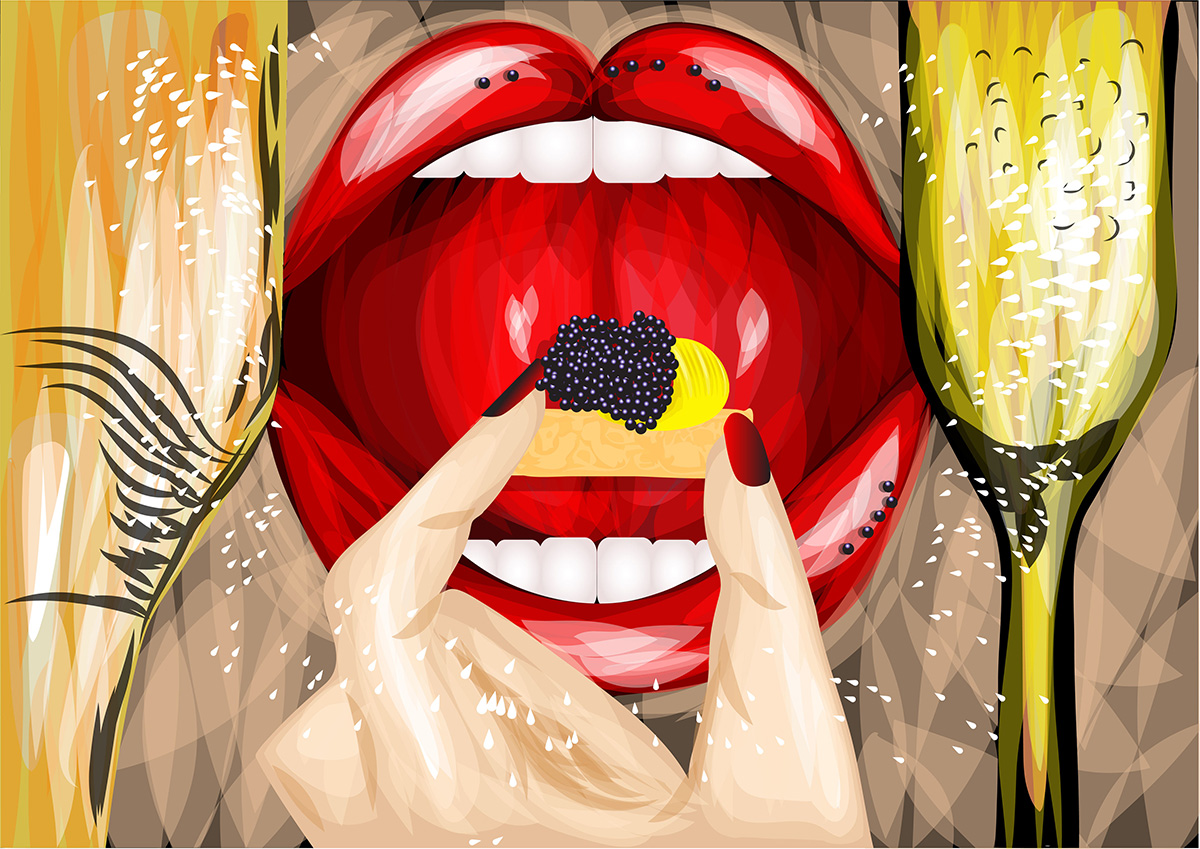 How does one receive the taste of, let’s say: swiss cheese, a ripe raspberry or a pungent anchovy at a molecular level? How do the foods we enjoy, interconnected with travel, affect our mood and our emotional state? In the past few weeks, I’ve had the opportunity to travel to Madrid, Dubai, Korea, Vietnam, Laos and Cambodia before eventually ending up back home in Miami. The foods I experienced and enjoyed while visiting these places made for the landscape, influenced my emotional state, and of course, the stories that unfolded.
How does one receive the taste of, let’s say: swiss cheese, a ripe raspberry or a pungent anchovy at a molecular level? How do the foods we enjoy, interconnected with travel, affect our mood and our emotional state? In the past few weeks, I’ve had the opportunity to travel to Madrid, Dubai, Korea, Vietnam, Laos and Cambodia before eventually ending up back home in Miami. The foods I experienced and enjoyed while visiting these places made for the landscape, influenced my emotional state, and of course, the stories that unfolded.
The memories are really endless. I can vividly recall sipping a 2001 Château Lafite Rothschild followed by a Vega-Sicilia Unico Reserva Especial along with some manchego cheese and jamón serrano in the dim Asador Donostiarra Restaurant in Madrid before a devilishly clandestine rendezvous, on a chilly night, with a great love. I remember the first time I tried Arabic coffee at Sultan’s Lounge inside the Zabeel Saray Hotel. As bon-vivants zipped about to and fro, while a well-tailored Brit in a charcoal pinstriped suit with a devilish smirk and a two-day shadow made nonchalant eye contact. A debonair man perhaps of 007 distinction — I’ve always wanted to be a Bond Girl. The gold, ruby and teal lavish décor of the lounge, and how the sweetness of the rose and pistachio cookies accompanying the robust coffee, incremented and augmented the thrill of it all.
 I smell, via the chimera of the mind, the flavorful paella de mariscos in Spain. My mouth also waters as I travel back to some days ago, following my trip to Spain, and envision sitting crossed-legged in a thatch hut atop a tree house in Luang Parbang. Wrapped in several blankets fending the cold and savoring vegetable and fish fondue followed by the most delicious sticky rice and mango dessert I’ve ever had the pleasure to devour.
I smell, via the chimera of the mind, the flavorful paella de mariscos in Spain. My mouth also waters as I travel back to some days ago, following my trip to Spain, and envision sitting crossed-legged in a thatch hut atop a tree house in Luang Parbang. Wrapped in several blankets fending the cold and savoring vegetable and fish fondue followed by the most delicious sticky rice and mango dessert I’ve ever had the pleasure to devour.
This all leads to the question: How do tastebuds work? How do they alter our biochemistry and how do they assist in telling the story of our experience? Based on the research conducted by Bioengineer Myunghwan Choi and his colleagues at Harvard, taste cells are not only sensors of food intake but also of internal body states. That’s right: Tastebuds are like tiny little micro-brains.
“How do tastebuds work? How do they alter our biochemistry and how do they assist in telling the story of our experience?”
When it comes down to it, the tongue is able to recognize 5 basic tastes: sweet, salty, sour, bitter and umami [Japanese for savory]. The temporal lobe, also called the hippocampus, is what processes smell and taste in the brain. It’s also involved with memory, which is why smells can evoke powerful memories of experiences.
Molecules of the food you’re eating move through the back of the throat and reach olfactory nerve-endings in the roof of the nose. As taste and trigeminal messages move further through the brain, they join up with smells to give the sensation of flavor, which feels as if it comes from the mouth. In reality, 80% of the flavors we taste actually come from our nose.
 Our olfactory system, our surroundings — visually what stands before us, the sounds we’re hearing at any given moment, and how our senses are being engaged — work together as a symphony to dictate our state of mind and influence us down to a molecular level. Our emotions share some very real biochemical links with our nervous, endocrine, immune and digestive systems.
Our olfactory system, our surroundings — visually what stands before us, the sounds we’re hearing at any given moment, and how our senses are being engaged — work together as a symphony to dictate our state of mind and influence us down to a molecular level. Our emotions share some very real biochemical links with our nervous, endocrine, immune and digestive systems.
A groundbreaking 1998 study published in The Journal Of Biological Psychology determined that stress can alter our tastebuds, making food seem less sweet…more bitter. We’ve all heard how stress is bad for us — the surge of cortisol and adrenaline can throw our bodies off balance, creating havoc, and leaving us feeling spent and depressed. No one should ever feel that way.
But how do mental states of gratitude, mindfulness, wholeheartedness, contemplativeness and relaxation impact our biochemistry? From all of my recent travels, there have been moments, most recently, that from the level of excitement and adventure (mixed in with large dosages of jet lag) that I’ve felt my immune system taking a beating.
Even if you’re aware of how the environment influences us, even if you can consciously leverage your mind and body to work in synchronicity with you, certain factors do come into play that are out of your control. The dense pollution in certain cities, lack of proper sleep, and the recycled air plagued with germs on airplanes can all have an affect on your overall vibe.
 The real flavor of life lies in maintaining vigilance over your surroundings and acknowledging how your senses are being stimulated. It’s important to preserve serenity to ward off stress; to enjoy the progression of being in the moment for the vignettes that sum up our individual journeys. Those are the elements that add flavor to our lives.
The real flavor of life lies in maintaining vigilance over your surroundings and acknowledging how your senses are being stimulated. It’s important to preserve serenity to ward off stress; to enjoy the progression of being in the moment for the vignettes that sum up our individual journeys. Those are the elements that add flavor to our lives.
Looking back, what made the wine, the coffee, the food, the love affairs and the destinations magical and moving was the immense and authentic sense of gratitude they yielded. That impart, spills into all other psychosomatic aspects of living wholeheartedly. And to close, yes, I plan to stay in touch with the Brit, but only to spotlight him in an article at a later date. The focus: an exposé on the life of an attaché to the royal family. Most certainly Bond caliber. Seems like the remedy works.











